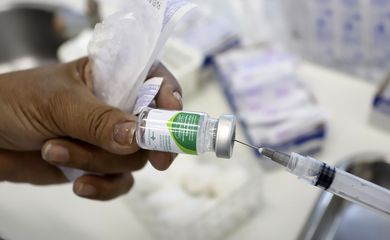Covid-19: WHO points to low vaccine coverage and insufficient testing


The world faces "a toxic mixture" resulting from low vaccine coverage against covid-19 and an insufficient level of testing, warned today (1) the director general of the World Health Organization (WHO), Tedros Adhanom Ghebreyesus. He said it's a perfect recipe for variants to reproduce.

"The end of the pandemic is not a matter of luck, it is a matter of choice," the WHO director said at a press conference. "Globally, we have a toxic mix of low vaccination coverage and very low screening, a prescription perfect for variants to reproduce and amplify."
The alert comes after the emergence of the Ômicron variant of the SARS-CoV-2 virus in November, which sent the world into a panic. Never has a variant caused so much concern in the world since the emergence of Delta.
WHO reported that Ômicron – also known as B.1.1.529 – was first reported on 24 November 2021 by South Africa, while the first laboratory-confirmed case was identified from a sample collected on 9 November November".
Ômicron worries experts because it has many mutations that could make it more contagious and potentially more resistant to vaccines. Studies are underway to determine whether this is indeed the case and to what extent, but first results are not likely to be available until the next few weeks.
"At least 23 countries in five of the six WHO regions have reported cases of the Ômicron variant, and we expect that number to increase," said Tedros.
There have been four more worrying variants so far: Delta, which represents almost all of the cases sequenced worldwide, Alpha, Beta and Gamma.
Covid-19 has caused at least 5,214,847 deaths worldwide, among more than 262.26 million infections by the new coronavirus registered since the beginning of the pandemic, according to the most recent balance of the Agence France-Presse.
The disease is caused by the SARS-CoV-2 coronavirus, detected in late 2019 in Wuhan, a city in central China.
A new variant, Ômicron, was recently identified in South Africa and, according to the WHO, the "high number of mutations" may imply greater infectivity.
Text translated using artificial intelligence.




